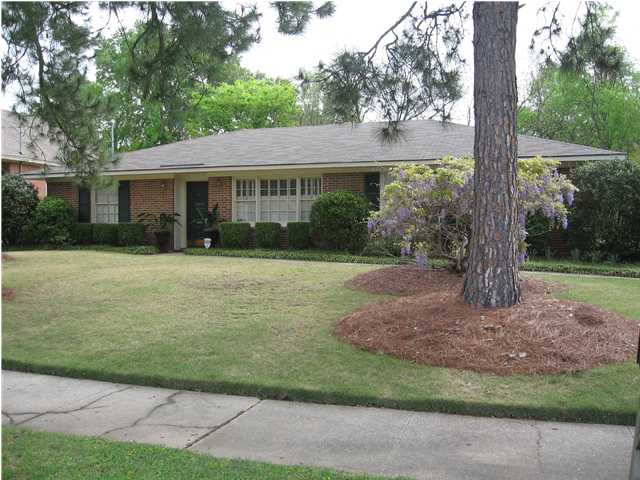If you're thinking of selling your Montgomery home, and you expect that the total amount you owe on your mortgage will be greater than the selling price of your home, you may be facing a short sale. A short sale is one where the net proceeds from the sale won't cover your total mortgage obligation and closing costs, and you don't have other sources of money to cover the deficiency. A short sale is different from a foreclosure, which is when your lender takes title of your home through a lengthy legal process and then sells it.
 1. Consider loan modification first. If you are thinking of selling your Montgomery home because of financial difficulties and you anticipate a short sale, first contact your lender to see if it has any programs to help you stay in your home. Your lender may agree to a modification such as:
1. Consider loan modification first. If you are thinking of selling your Montgomery home because of financial difficulties and you anticipate a short sale, first contact your lender to see if it has any programs to help you stay in your home. Your lender may agree to a modification such as:
- Refinancing your loan at a lower interest rate
- Providing a different payment plan to help you get caught up
- Providing a forbearance period if your situation is temporary
When a loan modification still isn't enough to relieve your financial problems, a short sale could be your best option if
- Your property is worth less than the total mortgage you owe on it.
- You have a financial hardship, such as a job loss or major medical bills.
- You have contacted your lender and it is willing to entertain a short sale.
2. Hire a qualified team. The first step to a short sale is to hire a qualified real estate professional* and a real estate attorney who specialize in short sales. Interview at least three candidates for each and look for prior short-sale experience. Short sales have proliferated only in the last few years, so it may be hard to find practitioners who have closed a lot of short sales. You want to work with those who demonstrate a thorough working knowledge of the short-sale process and who won't try to take advantage of your situation or pressure you to do something that isn't in your best interest.
A qualified real estate professional can:
- Provide you with a comparative market analysis (CMA) or broker price opinion (BPO).
- Help you set an appropriate listing price for your home, market the home, and get it sold.
- Put special language in the MLS that indicates your home is a short sale and that lender approval is needed (all MLSs permit, and some now require, that the short-sale status be disclosed to potential buyers).
- Ease the process of working with your lender or lenders.
- Negotiate the contract with the buyers.
- Help you put together the short-sale package to send to your lender (or lenders, if you have more than one mortgage) for approval. You can't sell your home without your lender and any other lien holders agreeing to the sale and releasing the lien so that the buyers can get clear title.
3. Begin gathering documentation before any offers come in. Your lender will give you a list of documents it requires to consider a short sale. The short-sale "package" that accompanies any offer typically must include
- A hardship letter detailing your financial situation and why you need the short sale
- A copy of the purchase contract and listing agreement
- Proof of your income and assets
- Copies of your federal income tax returns for the past two years
4. Prepare buyers for a lengthy waiting period. Even if you're well organized and have all the documents in place, be prepared for a long process. Waiting for your lender's review of the short-sale package can take several weeks to months. Some experts say:
- If you have only one mortgage, the review can take about two months.
- With a first and second mortgage with the same lender, the review can take about three months.
- With two or more mortgages with different lenders, it can take four months or longer.
When the bank does respond, it can approve the short sale, make a counteroffer, or deny the short sale. The last two actions can lengthen the process or put you back at square one. (Your real estate attorney and real estate professional, with your authorization, can work your lender's loss mitigation department on your behalf to prepare the proper documentation and speed the process along.)
5. Don't expect a short sale to solve your financial problems. Even if your lender does approve the short sale, it may not be the end of all your financial woes. Here are some things to keep in mind:
- You may be asked by your lender to sign a promissory note agreeing to pay back the amount of your loan not paid off by the short sale. If your financial hardship is permanent and you can't pay back the balance, talk with your real estate attorney about your options.
- Any amount of your mortgage that is forgiven by your lender is typically considered income, and you may have to pay taxes on that amount. Under a temporary measure passed in 2007, the Mortgage Forgiveness Debt Relief Act and Debt Cancellation Act, homeowners can exclude debt forgiveness on their federal tax returns from income for loans discharged in calendar years 2007 through 2012. Be sure to consult your real estate attorney and your accountant to see whether you qualify.
- Having a portion of your debt forgiven may have an adverse effect on your credit score. However, a short sale will impact your credit score less than foreclosure and bankruptcy.
If you ar someone you know is in financial distress, selling your Montgomery home through a short sale may be the right move for you. Give us a call for a private consultation.
Note: This article provides general information only. Information is not provided as advice for a specific matter. Laws vary from state to state. For advice on a specific matter, consult your attorney or CPA.
Reprinted from Realtor Magazine with permission of National Associatin of Realtors.
 2804 Windsor Avenue in Montgomery AL is SOLD!
2804 Windsor Avenue in Montgomery AL is SOLD!


 ow Drive has been sold by the Hat Team, Sandra Nickel Realtors.
ow Drive has been sold by the Hat Team, Sandra Nickel Realtors.
 l cozier.
l cozier. 
 1. Will your inspection meet recognized standards? Ask whether the inspection and the inspection report will meet all state requirements and comply with a well-recognized standard of practice and code of ethics, such as the one adopted by the American Society of Home Inspectors or the National Association of Home Inspectors. Customers can view each group's standards of practice and code of ethics online at
1. Will your inspection meet recognized standards? Ask whether the inspection and the inspection report will meet all state requirements and comply with a well-recognized standard of practice and code of ethics, such as the one adopted by the American Society of Home Inspectors or the National Association of Home Inspectors. Customers can view each group's standards of practice and code of ethics online at  1. Consider loan modification first. If you are thinking of selling your Montgomery home because of financial difficulties and you anticipate a short sale, first contact your lender to see if it has any programs to help you stay in your home. Your lender may agree to a modification such as:
1. Consider loan modification first. If you are thinking of selling your Montgomery home because of financial difficulties and you anticipate a short sale, first contact your lender to see if it has any programs to help you stay in your home. Your lender may agree to a modification such as: 







